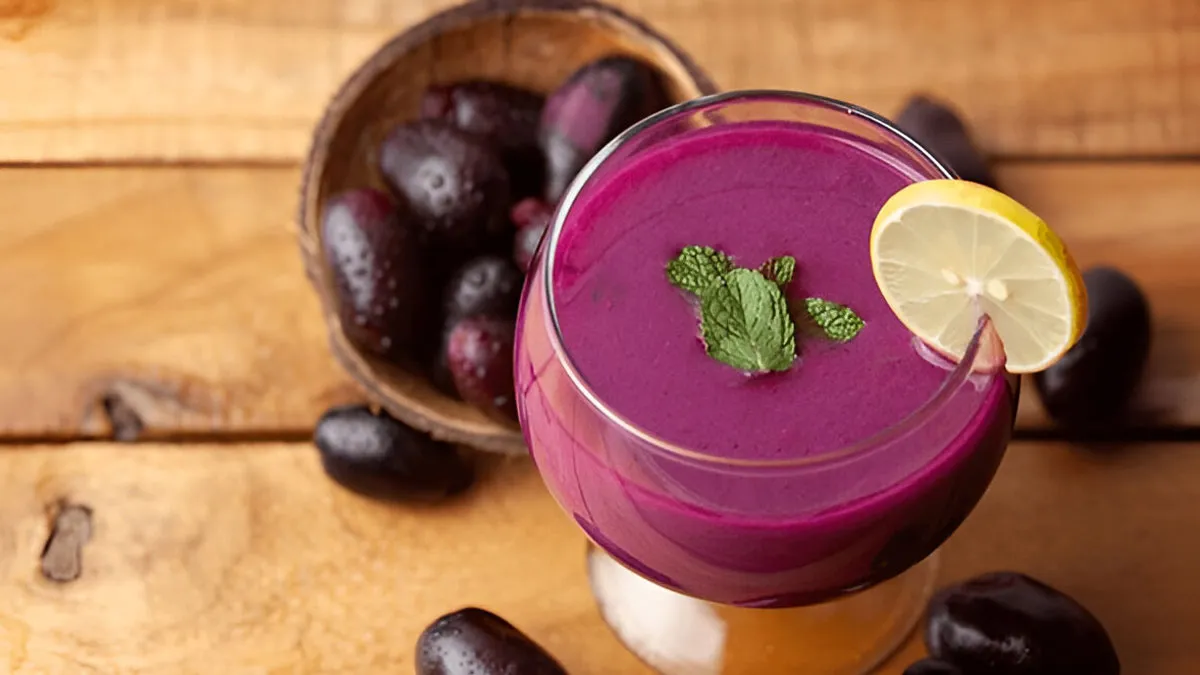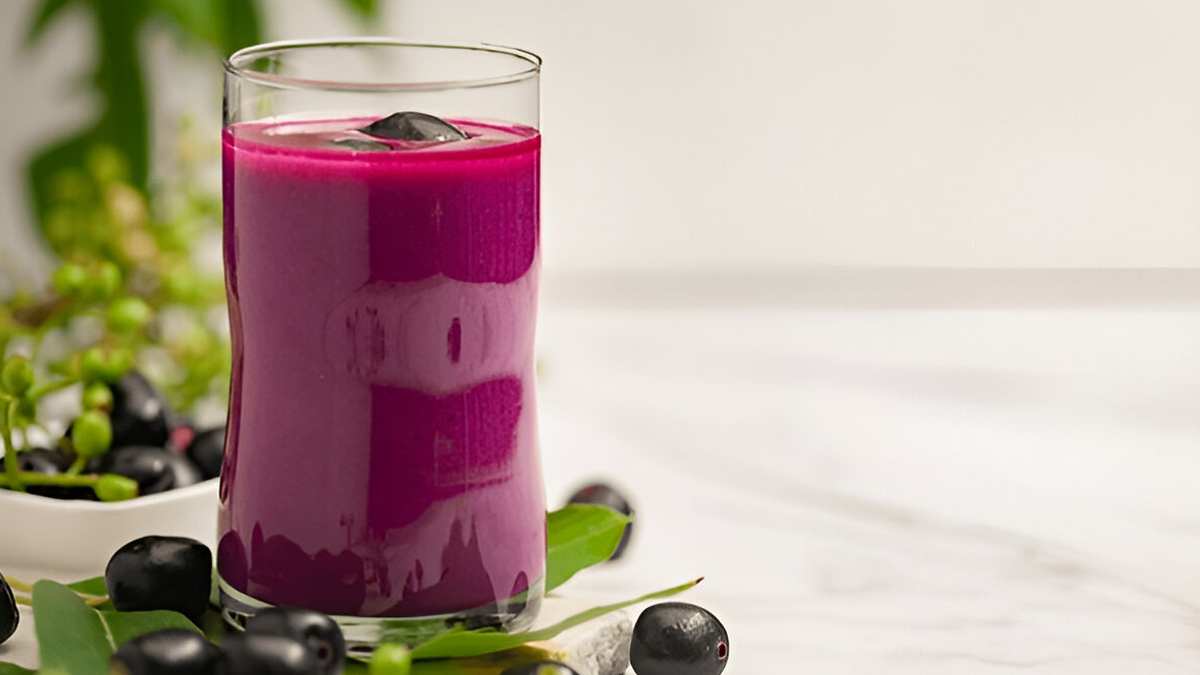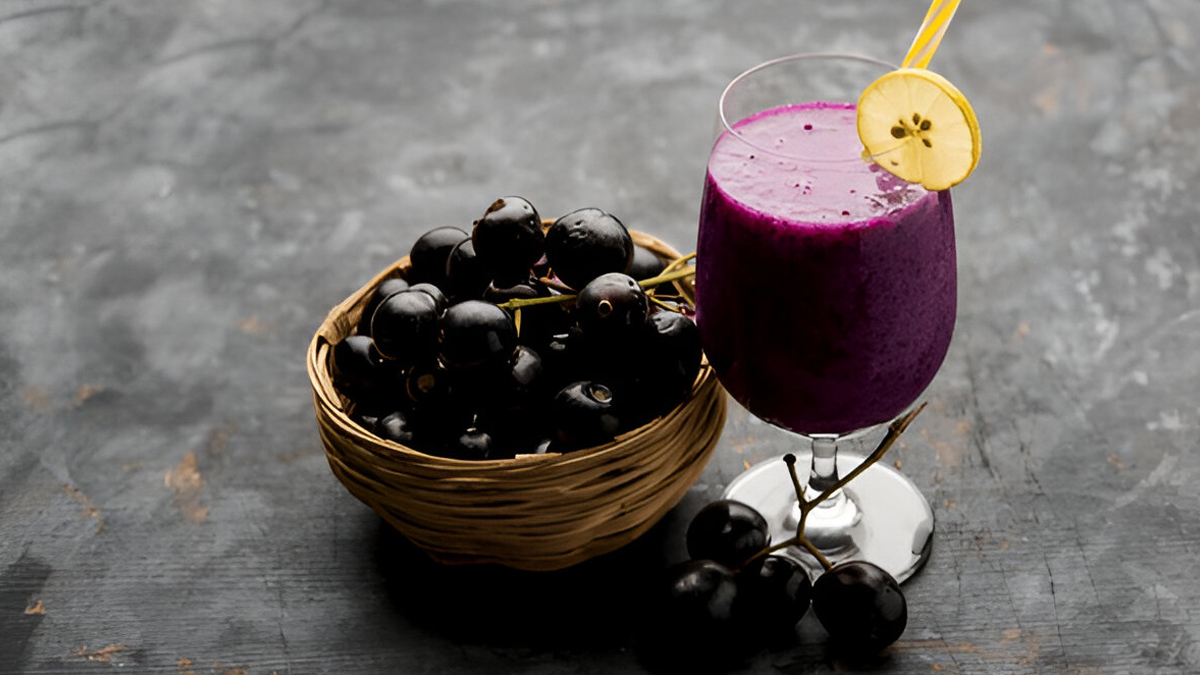
‘Tis the season of jamuns. Jamun, also known as black plum or Syzygium cumini, is found in the Indian subcontinent and Southeast Asia. It has a sweet and slightly acidic flavour that is very versatile when it comes to culinary uses. You can eat it raw, turn it into a sauce or jam, or use its seeds for medicinal purposes.
Table of Content:-
Another great way to have jamun is by making juice out of it. It may have a unique sweet and tangy flavour with a slightly astringent aftertaste. Consuming jamun juice regularly is said to be extremely beneficial for your health, particularly in managing blood sugar levels. An expert sheds light on the same and discusses jamun juice’s role in diabetes management.
Also Read: Can Jamun Seed Powder Be The Ultimate Superfood For Diabetes Management? Find Out Here
How Does Jamun Juice Aid Blood Sugar Management?

According to Dr G. Krishna Mohan Reddy, Consultant Physician and Diabetologist, Yashoda Hospitals, Hyderabad, pure jamun juice contains bioactive compounds, like jamboline and ellagic acid, which naturally slow down sugar absorption in the body. "The important constituents present in the black jamun are anthocyanins and polyphenolic compounds (glucoside, anthocyanin, ellagic acid, isoquercetin, jambolin and jambosine), which have been reported to reduce blood glucose. However, among these, jambolin and jambosine appreciably alter the hydrolysis of carbohydrates into the simpler sugars and thereby improve the diabetic condition," he explains, adding that these compounds aid in maintaining steady glucose levels, giving those with high blood sugar a smoother, healthier way to manage it. Plus, it encourages insulin sensitivity, making it a diabetes-friendly fruit.
A 2022 study published in the journal Molecules suggests that jamun can be used to treat metabolic syndrome-related symptoms all over the world. Researchers shared that jamun's seeds, also known as “Maghz-e-Jamun or Tukhm-e-Jamun”, have an antihyperlipidemic action in intermediate hyperglycaemia (prediabetes). Antihyperlipidemic action refers to the effect of drugs or other substances in lowering abnormally high levels of lipids (fats), such as cholesterol and triglycerides, in the blood.
Additionally, the fruit supports the conversion of carbohydrates to energy and regulates blood sugar levels. Moreover, it is low on the glycaemic index, which makes it a great addition for a diabetic diet.
How Much Jamun Juice Should You Consume In A Day?

Dr Reddy recommends having 0.5 – 2 tsp (2.5 – 10 ml) of ripe jamun fruit juice thrice a day.
As far as fruit itself is concerned, you can have a moderate amount of 8-10 fruits a day.
Also Read: If You Are Trying To Lose Weight, Jamun Can You Lose The Extra Fat: Here’s How
Side Effects To Consider

The following are some jamun fruit side effects that people should note:
- Drop in blood sugar: People with low blood sugar should be careful, as it can lower sugar levels even more.
- Allergic reaction: Some people may experience itching, swelling or rash.
- Sore throat: Eating too many raw jamuns can sometimes cause throat irritation.
- Constipation: Overeating may slow down digestion.
- Not safe before surgery: Jamun may affect blood sugar levels, so it's advised not to eat it before or after surgery.
Dr Reddy adds, “Jamun has the potential to reduce blood sugar levels. Therefore, when taking Jamun in addition to antidiabetic medications, it is generally advised to keep an eye on your blood sugar levels.”
Conclusion
Jamun is known for its rich nutritional profile, which is why it is often considered a superfood. Packed with several vitamins, minerals, and antioxidants, it has been traditionally used for medicinal properties, particularly in the treatment of high blood sugar in diabetic patients. However, one should remember to consume it in moderation – be it raw or as juice. Speak to a doctor if you are already on diabetic medication.
Also watch this video
How we keep this article up to date:
We work with experts and keep a close eye on the latest in health and wellness. Whenever there is a new research or helpful information, we update our articles with accurate and useful advice.
Current Version